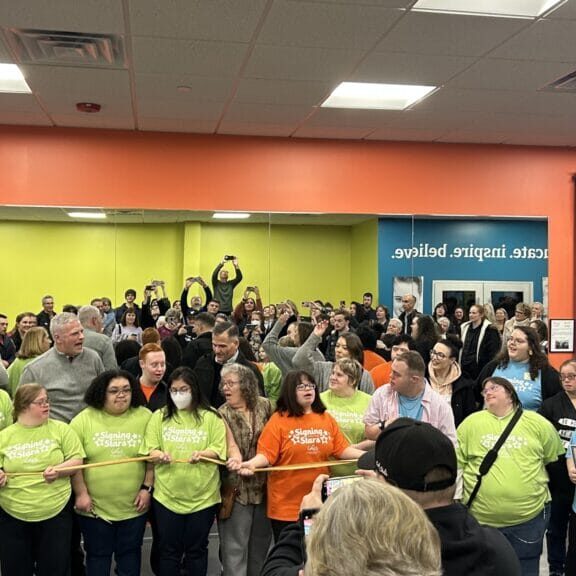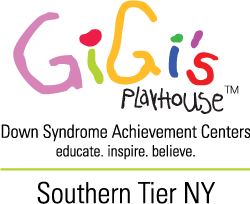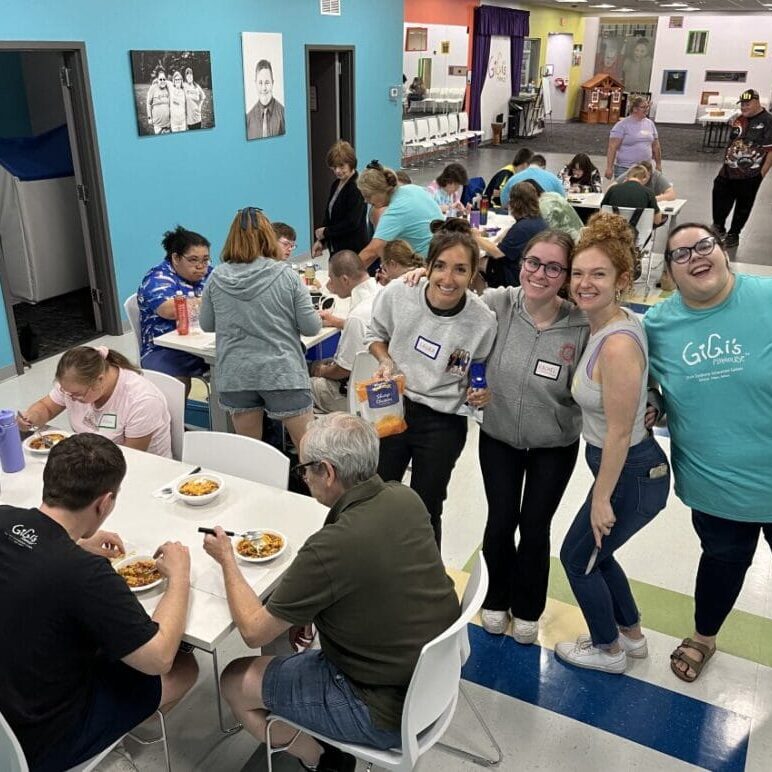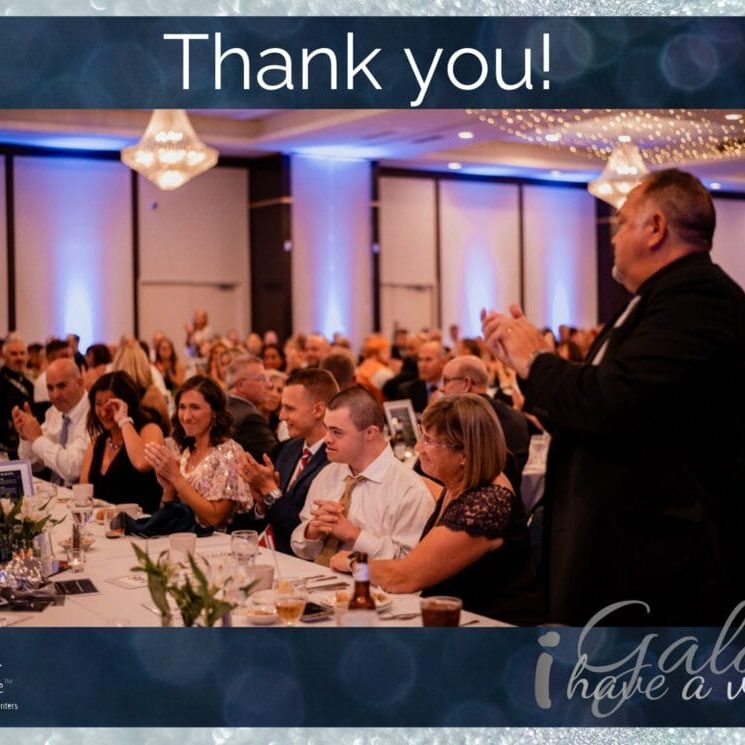Reflection: Down Syndrome Awareness Month
“Each year, October is National Down Syndrome Awareness Month. What does that mean here at GiGi’s Playhouse? It means it’s a perfect time to learn about Down syndrome; what it is and what it isn’t, educate ourselves and others, and advocate for our friends with Down syndrome.
The writer of this blog post is a relatively new face to the GiGi’s Playhouse family, and before my introduction to GiGi’s Playhouse, I had done little to learn about Down Syndrome. As such, I spent this month educating myself about Down syndrome to better support GiGi’s Playhouse as a whole, as well as the people GiGi’s Playhouse supports, and placing myself in a more educated space.
The first step is learning about and developing a better understanding of Down syndrome. So, what is Down syndrome? Down syndrome is a genetic condition that occurs when an individual is born with an extra copy of chromosome 21, resulting in a 47th chromosome rather than the typical 46.
Down syndrome may impact cognitive and physical development and can do so differently for each person with Down syndrome. The National Down Syndrome Society notes that some common traits in babies born with Down syndrome include low muscle tone, a flatter facial profile, a smaller nose, upward-slanting eyes, and a deep palm crease.
While the first step may be learning about Down syndrome, the most important step is learning what Down syndrome is not. This means addressing bias, myths, and stereotypes that exist surrounding people with Down syndrome. A common myth is that people who have Down syndrome are always happy. WRONG! Another myth is people with Down syndrome can’t participate in sports, school, or work. WRONG. People with Down syndrome can’t live independently. WRONG!

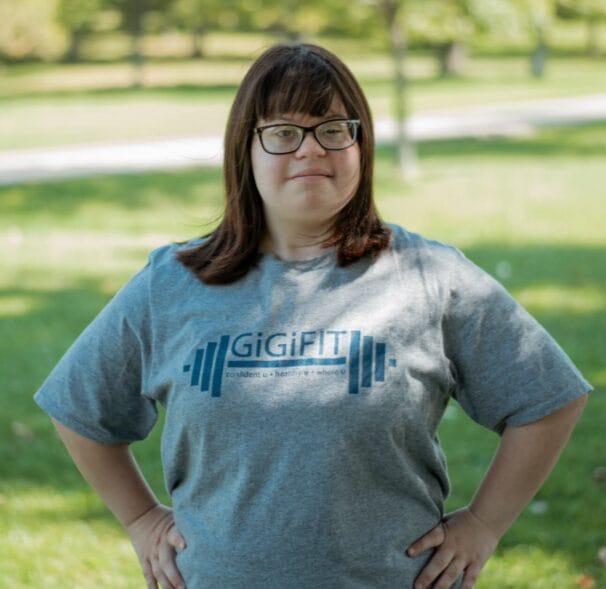
Here are the facts. People with Down syndrome have a broad range of emotions and moods, as every person does. People with Down syndrome participate in sports, work, and school as well as live independently. Every person with Down syndrome is different, as are their developmental and physical characteristics.
At GiGi’s Playhouse, we have individuals who play sports, participate as athletes in the Special Olympics and our GiGiFIT programs, and attend school or work. At GiGi’s Playhouse we have programs that target career training skills targeted at preparing people with Down syndrome to enter the workforce, including programs focused on preparing people for professional jobs or building communication and money management skills for independent living.
While this post provides only a snapshot of what I learned and, most importantly, unlearned this month, I hope that it will provide at least a foundation for others to choose to learn more about Down syndrome and how you can better support and understand those with an extra chromosome!”
– Gina Middleton, Board Member
Recent Posts
